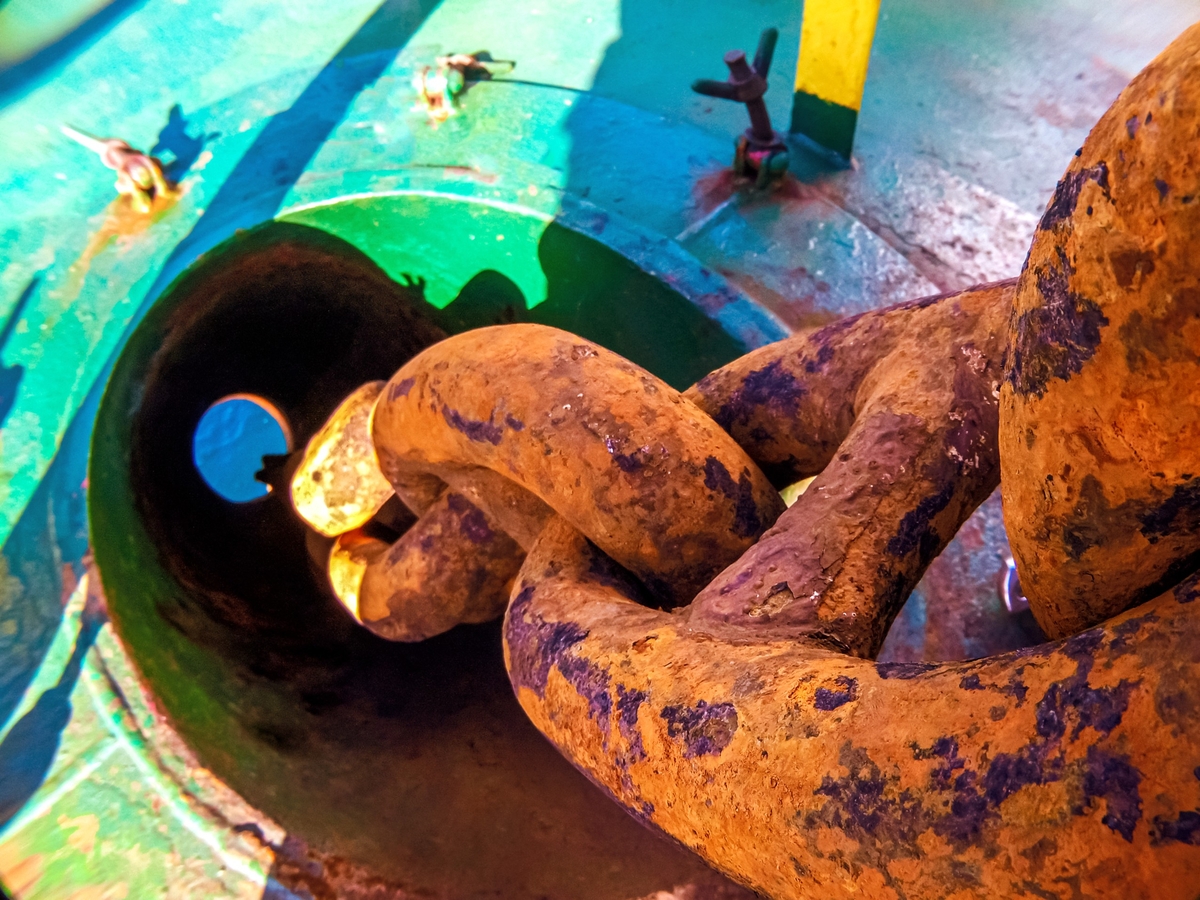
Bernhard Schulte Shipmanagement Takes Delivery of First Methanol Dual-Fuel Bulk Carrier
29 Jan 2026 - News
Published on 19 Jun 2023

Our ship was transiting heavy monsoonal seas on her route from Colombo to Salalah when she had water ingress into the forward bosun store. She subsequently suffered a black out and equipment damage due to the water ingress.
- Preparing for heavy weather / securing arrangements not effective.
- Testing of bilge alarms not effective / defective audible alarms of the alarm control system not identified.
- Safety inspections not effective / safety critical deficiencies not identified and reported.
- Superintendent inspections.
- Competency assessment.
- Emergency response.
- Ship was taken over in sub-standard condition and funding / budget was not sufficient.
- Owners 2022 OPEX, was approved in May 2022, while yearly budgets are normally approved at the end of a year. Until May 2022 funding of monthly advances were partially utilized to cover additional expenditure (2021 OPEX overruns) for repair and upgrading of safety related items and certain items to ensure that the vessel remained operational.
- Promoting and encouraging speaking up:
- SMS compliance.
- Risk assessment.
- Effective internal inspections and reporting.
- Heavy weather precautions.
- Alarm testing and follow-up.
- Emergency preparedness and response.
- Start-up after blackout condition and the same is prominently posted.
- Emergency bilge operations in the forecastle.
- Refueling the emergency generator.
- Mandatory office review by changing the setting in PAL.
- Adding weather tight integrity verifications of securing hatches, spurling pipes, other deck openings and internal communications.
29 Jan 2026 - News
05 Dec 2025 - News
BSM, in partnership with Schulte Group member OceanOpt, has won the Greenhouse Gas Project of the Year at the IMCA Annual Awards 2025. The ceremony was held during the Global Summit in Kuala Lumpur on 26 November.
05 Dec 2025 - News | Articles | Articles
19 Nov 2025 - News | Articles | Articles
17 Nov 2025 - News | Articles | Articles
27 Oct 2025 - News | Articles | Articles
As the maritime industry accelerates its transition toward sustainable energy solutions, Bernhard Schulte Shipmanagement (BSM) is proud to announce a significant milestone in crew training and safety innovation: the successful launch of bespoke Methanol as Fuel Courses, including the specialised Methanol Firefighting Course, across its global Maritime Training Centres (MTCs).
30 Sep 2025 - News | Articles | Articles
01 Sep 2025 - News
We are thrilled to announce the renewal of our partnership with Treedom, a global NGO dedicated to reforestation and community empowerment. Together, until the end of 2024, we have planted 5,100 trees across 5 countries, absorbing 2,443 tonnes of CO₂, a major step toward a more sustainable planet!
03 Jul 2025 - News | Articles | Articles
02 Jul 2025 - News | Articles | Articles
17 Jun 2025 - News | Articles | Articles
The BSM Hellas Ship Management Centre (SMC) in Greece, proudly marks its 20th anniversary this year.
10 Jun 2025 - News | Articles | Articles
Bernhard Schulte Shipmanagement (BSM) proudly participated in the IMCA Dynamic Positioning Conference 2025, held on 3–4 June in Istanbul, Turkey. This premier global event brought together over 120 professionals from the offshore and maritime sectors, including experts in offshore wind, oil and gas, marine engineering, and vessel design.
27 May 2025 - News | Articles | Articles
05 May 2025 - News | Articles | Articles
16 Apr 2025 - News | Articles | Articles